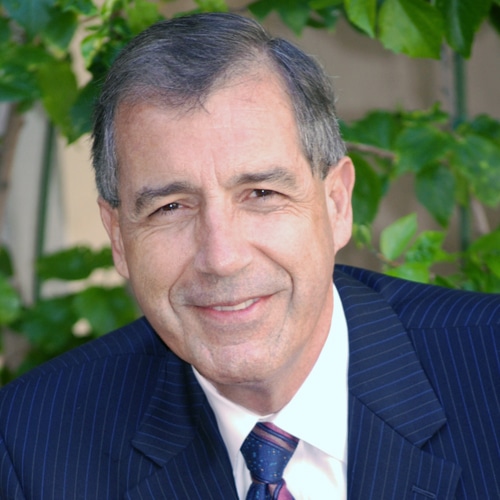In “Why Lawyers Really Struggle for Work-Life Balance,” I outlined six steps for building a practice that pays well, runs smoothly and allows you to have a life. In this post, we’ll discuss the fifth step, better market focus.
Changing the “Skills” Mindset
Young people go to law school as idealists: “I want to help people.” But they come out of law school with a different view: “I want to be a litigator,” or “I want to do estate planning.”
They’ve started believing their purpose and their skills are one and the same. That’s why most lawyers, when asked what they do, will say “I’m a litigator” or “I do estate planning” or, worse, “I’m a lawyer.”
That thinking is wrong. Dead wrong. In fact, the lawyer’s skills are just tools. Important ones, but not the lawyer’s real purpose. Your purpose is still “to help people,” to help clients achieve a benefit or result. Lawyering skills, like the ability to negotiate a settlement or write a brief, are just the vehicles that help get the clients to their goal.
Where a Lot of Boats Founder
So, the next logical question is who should you be helping?
For the lost and undirected, the answer is “Anybody who needs my services.” This is where the boat begins to sink, or at least founder. Because marketing to “anybody” isn’t possible — unless you have a few million dollars to throw at it annually.
And let’s face it. Even attempting to market your skills is a tough way to go, too. Scores of competent litigators and estate planners and real estate attorneys are already out there marketing their skills. Besides, many are more skilled and have more credentials (and often more money) than you.
You may be good, but you’re not unique. So how do you compete?
Surprisingly, it’s not about becoming “the best.” It’s about becoming the most trusted.
Wisdom from the Successful Small-Town Lawyer
The most successful lawyers in smaller towns are known, either personally or by reputation, as a “trusted advisor” regardless of their practice area. (See David Maister’s seminal book “The Trusted Advisor.”) They’re the first person many area residents think to call for advice (and maybe services) for any legal problem.
The successful trusted advisor in a small town gets all the legal calls first, no matter the nature of the problem. These lawyers get to pick what they can help with, and refer the rest to other attorneys. And that builds a big “refer back” group.
Focus: Creating Your Small Town in the Big City
Even if you’re in a big city, you can become a trusted advisor in a small town. Here are a few examples.
- A decade ago, a Chicago client called for help in building her business practice. In our conversation I learned that she was ethnically Serbian; her parents had emigrated in the ’50s and opened a grocery store that became the de facto center of the Serbian community. So I asked, “How are you marketing to the Serbian community?” Her answer floored me. “What do you mean?” she said. The huge advantage of targeting a specific community is that it’s very definable. You can identify every publication, radio or TV station, community center, church, service organization — even other businesses — that serve that community. You can identify and build trust relationships with leaders in that community that result in referrals. And that makes your marketing efficient, even cheap, because your reach is smaller and clearly delineated. After less than a year, my Chicago client essentially owned the (60,000-plus) Serbian community. She was high-profile in key groups, knew all the community leaders and influencers, and had become the “trusted advisor” within the community.
- Several years ago, I worked with a new lawyer in a city with a population of over 2 million. He was two years out of law school and wanted to practice business law. His wife was from a leading Argentinian family in the area, and he had lived in Argentina and spoke Spanish. We worked to identify all the groups, organizations and leaders in the Argentinian community and discovered that there was a population of more than 35,000 ethnic Argentinians, several newspapers, websites and blogs — and over 40 churches with a significant Argentinian component. We developed a campaign for him to speak at as many of those churches as possible about setting up and running a business in the U.S., and how to avoid potential minefields in the immigration and naturalization laws. Despite his age, his aggressive focus on the Argentinian target market started to position him as one of the trusted advisors in that community.
- One of the most powerful and focused lawyers I’ve worked with is a woman with a disabled son who fought years of battles with school boards to gain the accommodations for her son that the laws provided. From her experience, she decided to represent other parents fighting the same battles. Today she is one of the very few experts in this nearly untrammeled field and has a national reputation. Sometimes a small town is built from very personal experiences.
So “market focus” means finding your own small town in the big city. Or owning your actual small town by becoming the “trusted advisor” instead of just a lawyer.
Who Do You Have an Affinity With?
Identify a specific group you have some affinity with: special interest, ethnic, religious, business or other groups. You are … a veteran. A Native American. Married to an Argentinian. Second-generation Irish. Involved with environmental issues or politics. A member of a Catholic, Baptist, Lutheran or other church or temple. Parent of a special needs child or have a family member with a disability.
That’s your target market. A smaller, more definable group you have some honest connection with.
In targeting an affinity group, you don’t start cold. You start with an intrinsic advantage: something in common. You’re not a stranger, you’re one of us. People are more trusting of, and like to do business with, people who are like them.
The most powerful form of marketing is and always has been, personal. Building reputation and long-lasting relationships. That’s hard to do when you’re trying to market to “anybody,” but far easier when you have something in common with members of an affinity group.
One of the great advantages of focusing on an affinity group is that you effectively reduce the competition. There may be dozens of lawyers in your area who practice what you do. But you’re the only one, or one of only a few [fill in the blanks] lawyers, who share my interests, concerns or ethnicity.
And as your practice grows, you needn’t be confined to your small town. The reputation and referrals you build will pull you naturally into a wider marketplace — but one still driven by referrals, reputation — and trust.
So stop trying to market to everyone. Stop trying to compete with the more experienced, higher-profile, big-spending lawyers. Find your own “small town.” You’ll not only find prosperity, but also greater practice satisfaction and balance.
Catch Up on the Series
Successful lawyers learn new ways to operate their firms so they can keep building their practices while having (or recovering) a life. Here are six steps to help you do just that.

















